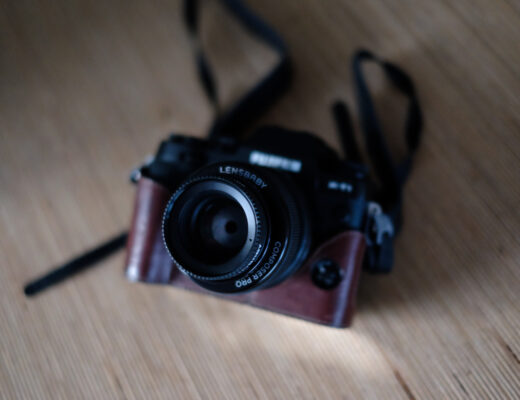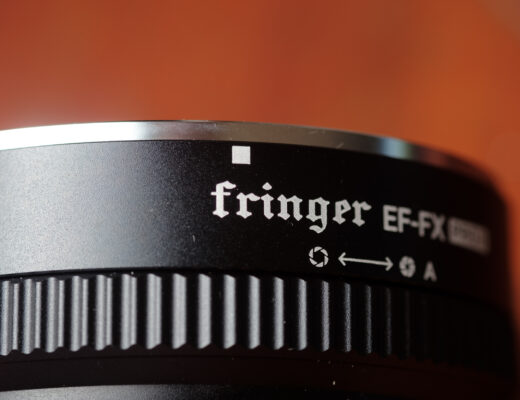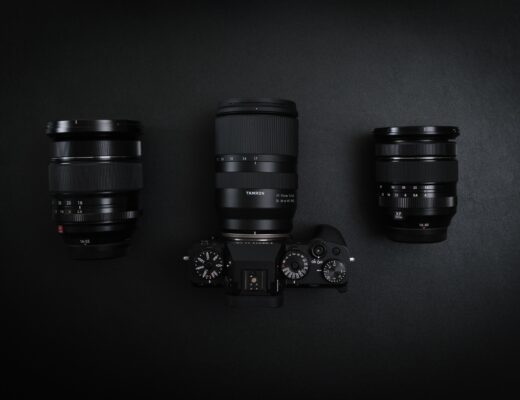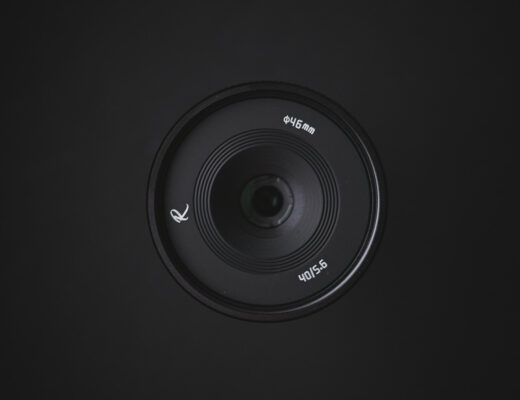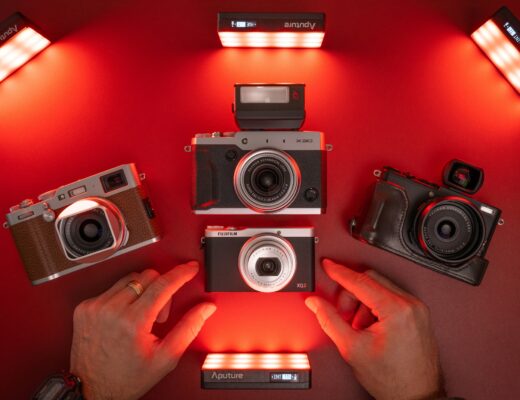It’s a preset world out there these days in the photo editing arena. Photographers want to spend more time shooting and less time fussing with images on their computers, so to make this more and more possible companies started selling presets. These program specific presets allow for photographers to come to the desired look for their image in less time than previously possible.
A popular subset of the plethora of preset systems out there focus on helping photographers achieve a vintage film-like look with their digital images. VSCO made a name for themselves with presets doing this, and another not as widely known company doing similar is RNI. I have had the chance to evaluate RNI’s latest Lightroom preset offering, RNI All Films 4 PRO, and today I wanted to share my experience with this extensive film emulation preset system from the perspective of a Fuji shooter.
*Before I get too much further, I just want to note that the images and examples you see here are not fully processed. Most are 1-click processed using the noted preset, a few had minor exposure adjustments. Otherwise these are untouched.*
What You Get
RNI All Films 4 PRO gives photographers access to 56 film stock emulations with a total of over 300 creative presets. In addition, the system comes with specific camera profiles which allows for the RNI presets to truly achieve their desired affect with your kit.
From the Fujifilm perspective, the system comes with camera profiles for all of the latest Fujifilm cameras, including the X-Pro2, X-T2, X-T20, GFX-50s and X-100F. Fujifilm’s last generation cameras are also supported. I was happy to see such robust support for the Fujifilm system, and specifically for my X-Pro2, which is my primary camera right now.
Installation and Setup Process
Unlike some other preset systems out there currently, RNI All Films 4 PRO does not come with an easy installer. This means installing them the old fashioned way, by unpacking a ZIP folder and following the directions (in the included PDF) regarding what folders to place the files in.
It has been a while since I had to install presets this way, but the process is easy enough. If you have had to do it before, the process is not different from any other preset system. It would be nice if the company invested in an easy Windows installer, for the sake of inexperienced and technology slow photographers. That said, in the long run it’s not a huge deal and assuming you can follow directions the install process shouldn’t take you more than a few minutes.
It should be noted though that there is an autoinstaller package for Mac users. So if you happen to be a Mac user the manual installation bits I noted above don’t apply to you unless you want to install them manually.
My Thoughts
I have been a heavy Lightroom and preset user for most of my photography career, only recently taking the time to develop a personal set of preset looks based around my shooting style and taste. So right off the bat I am going to say that RNI All Films 4 PRO has not been a revelation to me and my personal workflow. I will continue to be using my personal presets for the most part in order to keep consistency throughout my work.
That said, this is because I have spent countless hours on my own developing those presets to fit my needs and produce imagery that I am happy with. That is no reflection on the quality or viability of the RNI All Films 4 PRO package, and is more a reflection on my own artistic style and preferences.
So now that I have that point out of the way, I wanted to share how I feel about RNI All Films 4 PRO as simply and efficiently as possible. I think most of you are probably more interested in example and before/after images than my personal thoughts. So, I will be sure to include several of those below, but bear with me for a minute.
As someone who has used many preset systems over the years, one of the key differentiators between systems beyond the actual result of the presets is how they have their looks broken up and displayed in Lightroom. RNI has broken up their various presets into 6 folders in the Lightroom preset panel, those folders are: RNI Toolkit, RNI FILMS 4 BW – PRO, RNI FILMS 4 Instant 4 – PRO, RNI FILMS 4 Negatives – PRO, RNI FILMS 4 Slide – PRO, RNI FILMS 4 Vintage – PRO. The folders are broken up really logically, and are easy enough to navigate. Though if you are like me, adding 6 new folders to my presets panel was a little annoying – but that’s a personal thing.
In terms of the actual presets, the RNI All Films 4 – PRO system certainly has a lot of really great looking presets for you to choose from. I found a long time ago that I always like the idea of film emulation more than actual true to life emulations, and that was mostly true for a lot of the film stocks that I came across in the RNI library. That is not to say they are not accurate or do not work well, it’s more simply just a case of I am fairly picky about my image processing and a lot of the looks that I found simply were not in line with my preferred style.
This is to be expected though, no preset pack has ever been full of presets that everyone loves. It’s about finding the gems within the pack that speak to you and your art the most. As well, not everyone loved the look of every film stock ever developed either. So again, a lot of this just goes back to taste, and this pack just reaffirmed my personal belief that beyond a handful exceptions, most film looks are just simply not my cup of tea.
So how did the RNI All Films 4 – PRO system work in conjunction with my X-Pro2 and the Fujifilm RAW files? In a word, perfectly. I really have no complaints about the system in that regard, the presets looked great on the RAW files thanks to the RNI camera profiles. I did also investigate how the presets looked if I did not use the RNI camera profile, and in my case I found the difference to be subtle but noticeable when looking at virtual copies side by side, it was also more apparent in some shots over others.
It is often overlooked, but many times I have personally found that what seems to be the most minor of modifications to an image can sometimes result in taking a shot from good to great. I’m not saying the difference between using the RNI camera profile vs an Adobe one will do that for your images, but the presets looked better in my opinion when using the custom RNI camera profiles.
Out of all the presets, I wasn’t surprised to find that my favorite overall looks were common and popular film stocks like Fuji Pro 400H, Kodak Gold 100 and Kodak Portra 400. I especially liked how each film stock had at least a few ‘creative variations’ which allowed me to easily modify the looks to my liking, meaning only very minor and minimal adjustments were needed from me manually. For me, this is exactly how a preset system should be, making it easy and simple to choose and refine a look leaving only minimal adjustments for the photographer.
It should be noted, these are still Lightroom presets, and as such, they are constrained by the shortfalls of editing RAF files in LR. The truth is that RAF file processing in LR is the best it has ever been, and for the majority of folks it is good enough. These presets aren’t some magic bullet to make LR love your RAF files, but then, you shouldn’t really be expecting them to.
That said, on a related note, it was revealed recently that RNI is in the process of creating a version of their presets to be compatible with Capture One Pro. According to The Phoblographer, which interviewed an RNI representative, the Capture One Pro Presets could be ready for the public within the next couple months. Great news for fans of Capture One who miss the plethora of preset options available with Lightroom.
So without further delay, here are those before/after images that I promised you…
*These were literally one click to demonstrate exactly what the preset itself was doing to the image.*

Before

After – RNI All Films 4 PRO – Kodak Gold 400

Before
In Conclusion
So to wrap it all up, RNI All Films 4 Pro is a robust yet easy to use preset system that does exactly what it sets out to do – make accurate film simulations in Lightroom easier and simpler for photographers to take advantage of. If you are a Fujifilm photographer who wants some vintage film looks to go along with your vintage film styled Fujifilm camera, than RNI All Films 4 PRO is an option you should heavily consider.
You can purchase or learn more about RNI All Films 4 PRO over on the RNI website, here. RNI All Films Pro 4 is currently available for $122. I’ll include a few more straight up examples below, feel free to skip to the comments if you have seen your fill.




















